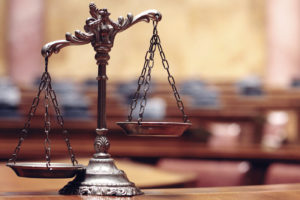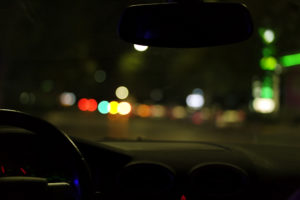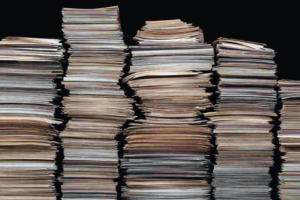When you are convicted of a DWI or DWAI in New York, your driver’s license is suspended. Under certain circumstances, however, you may be granted a conditional license which will give you limited driving permissions.
The Difference Between DWI and DWAI
First, let’s explain some of these terms. As you probably know, DWI is the acronym for Driving While Intoxicated–this is a more serious offense than an DWAI (Driving While Abilities Impaired). In many cases, defendants who are facing their first DWI offense are given the option to plea to a reduced DWAI violation and granted a conditional discharge.
A DWAI conviction bears a 90-day license suspension, as opposed to a six-month license suspension for a DWI. You will also be required to satisfactorily complete New York State’s Drinking Driver Program (DDP) as part of your conditional discharge. You are only eligible to complete the DDP once every five years following an arrest for a DWAI or DWI offense. In some cases, you may be granted a conditional license, or a license that will allow you to operate a vehicle for specific reasons, and with certain requirements during the time period of your license suspension.
Under what conditions may I drive when I have a conditional license?
- To and from your place of employment
- If your employment requires the operation of a motor vehicle then during the hours of which you are working
- To and from a class or an activity which is an authorized part of the alcohol and drug rehabilitation program and at which your attendance is required
- To and from a class or course at an accredited school, college or university or at a state approved institution of vocational or technical training
- To or from court ordered probation activities
- To and from a motor vehicle office for the transaction of business relating to such license or program
- For a three-hour consecutive daytime period, chosen by the administrators of the program, on a day during which you are not engaged in usual employment or vocation
- To and from a medical examination or treatment as part of the necessary medical treatment for you or member of your household, as provided by a written statement from a licensed medical practitioner
- To and from a place, including a school, at which your child or children are cared for on a regular basis and which is necessary for you to maintain your employment or enrollment at an accredited school, college or university or at a state approved institution of vocational or technical training.
You may not use a conditional license to drive to or from high school, as high schools are not accredited institutions.
Can I still be granted a conditional license in New York if I am an out-of-state resident?
If you are an out-of-state defendant, but were charged in New York, acquiring a conditional license is more complicated. The Department of Motor Vehicles cannot grant a conditional license for an out-of-state license, because they have no jurisdiction over the licensing in a different state. Similarly, they cannot issue a conditional license to a person who did not have a New York State license. You may be able to request an adjournment in order to acquire a New York State license. Your New York State license would then be suspended and you may be issued a conditional license in New York. As we said: it’s more complicated.
Recently, the conditional licensing statute has been altered to allow New York State to issue the conditional privilege of “operating a motor vehicle in this state.” This conditional privilege is basically the same as a conditional license, and will allow you to operate a vehicle in New York State under the conditional privilege without a New York State license.
The Vehicle and Traffic Law of New York provides a 90-day suspension for a first DWAI conviction, and a second DWAI conviction within five years will result in a six-month revocation. The difference between second convictions following a conviction for a DWI and a DWAI is that a DWI conviction is a predicate for a future felony charge if you are arrested again within 10 years of your initial DWI conviction. A DWAI is a violation, and not a crime, so it will not act as a predicate for a future felony charge if you are rearrested within 10 years. If you have participated in the DDP, but are arrested again within five years for a DWI or DWAI offense, the DMV will impose additional requirements in order for you to have your license reinstated once the period of suspension has expired. Although you will not be eligible to participate in the DDP, you will be required to participate in a DMV approved alcohol or drug treatment program before your license may be reinstated.
If I am eligible for the Drinking Driver Program, will I receive a conditional license?
Even if you are eligible for the DDP, you may not be eligible to receive a conditional license. A person will not be eligible for a conditional license if any of the following apply:
- You have been convicted of homicide, assault, criminal negligence or criminally negligent homicide arising out of operating a motor vehicle.
- Your eligibility for a rehabilitation program is based on a conviction involving a fatal accident.
- You do not have a currently valid New York State driver’s license. (This does not apply if your license has expired, but is still renewable, or if your license has been suspended as a result of the incident for your current conviction, or if your suspension resulted from a chemical test refusal for the incident that resulted in the current conviction)
- You have been convicted of another offense which resulted from the same incident as the current alcohol-related conviction
- You have had two or more revocations or suspensions of your driver’s license unrelated to your current conviction within the past three years. (This does not apply to revocations or suspensions that have been terminated due to your performance of certain actions, or if your license has been suspended due to a chemical test refusal.)
- You have been convicted more than once of reckless driving within the past three years.
- You have had a series of convictions, incidents, or accidents, or have a mental or medical condition, which the Commissioner or his agent determines would make you an unusual and immediate risk on the road.
- You have been penalized for a DWI, or a DWAI involving drugs.
- You are reentering the rehabilitation program for a second or subsequent time
- Your license has been suspended for a conviction of driving while ability impaired by drugs. Although you may be eligible for a restricted use license.
- You have had three or more alcohol related convictions or incidents within the last 10 years
Have you been charged with a DWI, DWAI or DUI in New York?
Contact us today for a free consultation: (646) 742-9800
Search NYPD BREATHALYZER RECORDS to see if the machine used to test you was faulty.
Can my conditional license be revoked?
There do exist certain circumstances in which your conditional license may be revoked. A conditional license may be revoked for the following reasons:
- Failure to attend or satisfactorily participate in the program or for failure to satisfy the requirements for participation in the program
- Conviction of any alcohol or drug related traffic offense, misdemeanor or felony
- Failure to attempt in good faith to accept rehabilitation, determined by a DMV hearing based upon receipt of notification that you are not attempting in good faith to accept rehabilitation
- Conviction for speeding, speed contest or racing, reckless driving, following too closely, or conviction for at least one traffic violation other than parking, stopping, standing, equipment inspection, or other non-moving violations where such violation(s) occurred during the period of validity of the conditional license
- Upon receipt of a conviction certificate which indicates that you have driven in violation of the conditional license.
- Upon receipt of a conviction certificate which requires mandatory suspension or revocation action.
- Upon receipt of additional information which would make you ineligible
If you are enrolled in a rehabilitation program, such as the DDP, and you have been issued a conditional license, but the department discovers or receives information which suggests that you should not have been given a conditional license, then your conditional license will be revoked.





You must be logged in to post a comment.